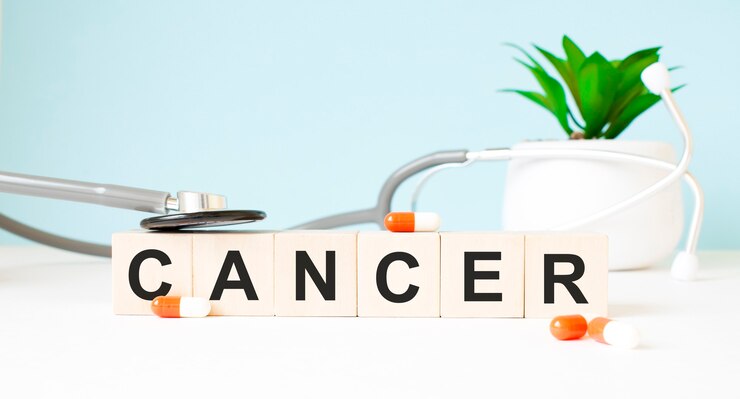Introduction
Cancer. Just hearing the word can fill one with dread and anxiety. It’s a disease that affects millions of people worldwide, and sadly, it seems to be on the rise. But did you know that there are things we can do to lower our risk? That’s right! Prevention is powerful when it comes to cancer, and in this blog post, we’re going to explore some steps you can take today to reduce your chances of developing this devastating disease. So grab a cup of tea (or coffee), sit back, and let’s learn how we can take control of our health!
What is Cancer?
Cancer is a disease in which abnormal cells divide uncontrollably. Cancerous cells can invade nearby tissues and spread to other parts of the body through the bloodstream and lymphatic system. There are many different types of cancer, each with its own set of signs and symptoms.
Cancerous cells differ from normal cells in several ways. They grow and divide more rapidly, they do not die when they should, and they can invade other tissues and spread to other parts of the body. Cancerous cells also have the ability to angiogenesis, which is the formation of new blood vessels. This allows them to receive the nutrients they need to grow and survive.
There are many risk factors for developing cancer, including smoking, exposure to ultraviolet radiation, certain infections, family history, certain inherited genetic mutations, and obesity. However, it is important to remember that not all people with risk factors will develop cancer. In fact, most people who develop cancer do not have any known risk factors.
Risk Factors for Developing Cancer
There are many risk factors for developing cancer, some of which you can control and some of which you cannot. Some of the more common controllable risk factors include:
-Tobacco use: Smoking is the leading cause of cancer death in the United States. If you smoke, quitting is the best way to reduce your risk of developing cancer.
-Excessive sun exposure: Too much sun can damage your skin and lead to skin cancer. Be sure to wear sunscreen when you are outdoors and avoid tanning beds.
-Obesity: Being overweight or obese increases your risk of developing several types of cancer, including ovarian, endometrial, and colon cancer. Maintaining a healthy weight is one of the best ways to reduce your risk.
-Alcohol consumption: Drinking alcohol increases your risk of developing several types of cancer, including breast, colon, and liver cancer. If you drink alcohol, do so in moderation.
How to Lower Your Risk of Developing Cancer
Cancer is a leading cause of death worldwide, but there are many things you can do to lower your risk of developing the disease.
Some lifestyle choices can have a big impact on your cancer risk. For example, smoking is the most important preventable cause of cancer. If you don’t smoke, don’t start. If you do smoke, quitting will lower your risk of developing cancer.
Other lifestyle choices that can affect your cancer risk include:
– Maintaining a healthy weight
– Eating a healthy diet
– Exercising regularly
– Limiting alcohol consumption
– Avoiding exposure to harmful chemicals and radiation
– Getting vaccinated against certain viruses (such as HPV) that can cause cancer
You can also lower your risk of developing cancer by getting regular screenings for the disease. These screenings can help find cancers early, when they’re most treatable. Speak with your doctor about which screening tests are right for you and when you should have them done.
Cancer Prevention Tips
Cancer is a debilitating disease that can have a profound impact on your health and quality of life. However, there are steps you can take to lower your risk of developing cancer. Here are some cancer prevention tips:
1) Quit smoking: Smoking is one of the leading causes of cancer, so quitting is one of the best things you can do for your health. If you’re struggling to quit, there are many resources available to help you, including nicotine replacement therapies and counseling.
2) Eat a healthy diet: Eating a diet rich in fruits, vegetables, and whole grains can help lower your risk of developing cancer. Additionally, limiting your intake of processed meats and red meat can also reduce your risk.
3) Get regular exercise: Exercise has numerous health benefits, including reducing your risk of developing cancer.Aim for at least 30 minutes of moderate-intensity exercise most days of the week.
4) Limit alcohol intake: Drinking alcohol increases your risk of developing cancer, so it’s important to limit your intake. If you do drink alcohol, limit it to one drink per day for women or two drinks per day for men.
5) Protect yourself from the sun: ultraviolet (UV) radiation from the sun can damage your skin and increase your risk of skin cancer. So be sure to use sunscreen with an SPF of at least 30 when spending time outside, and wear protective clothing if possible.
Conclusion
Cancer is a devastating illness, and one that can be difficult to manage. However, by following the tips in this article on the power of prevention, you can lower your risk of developing cancer and reduce your chances of having to deal with its long-term effects. Eating a balanced diet, exercising regularly and taking steps to reduce stress are all important factors for reducing your risk. Additionally, maintaining regular checkups with your doctor or healthcare provider can help detect any potential issues early on. By making small changes in our lifestyle choices now we can make big impacts on our health down the line!











